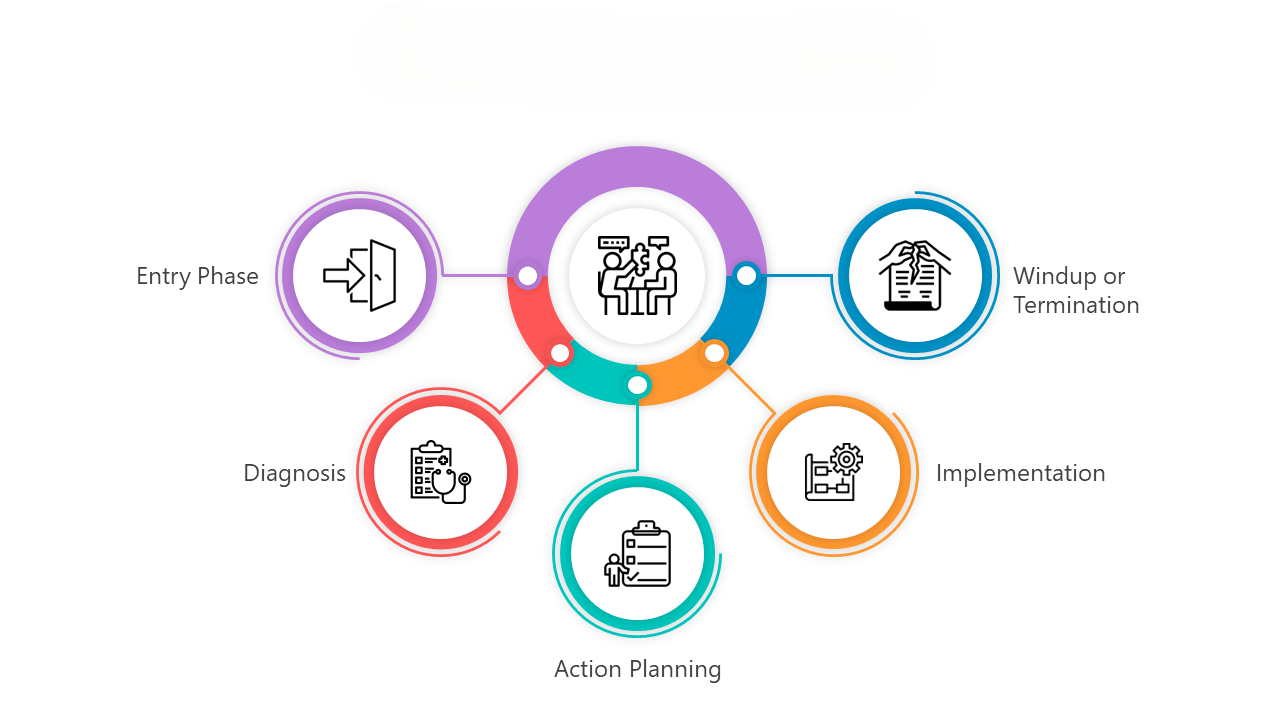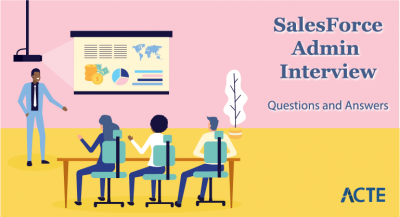
- Introduction to Salesforce Consulting
- Key Responsibilities of a Salesforce Consultant
- Skills Required for Salesforce Consultants
- Salesforce Certifications for Consultants
- Consulting Methodologies and Best Practices
- Requirement Gathering and Analysis
- Solution Design and Customization
- Integration and Deployment Strategies
- Client Communication and Documentation
- Challenges Faced by Salesforce Consultants
- Career Growth and Opportunities
- Tips to Become a Successful Salesforce Consultant
Introduction to Salesforce Consulting
Salesforce consulting is a specialized service that helps businesses leverage Salesforce, one of the world’s leading customer relationship management (CRM) platforms, to optimize their sales, marketing, customer service, and other business processes. A Salesforce consultant brings expertise in understanding the unique needs of a business and aligning those requirements with Salesforce’s wide range of tools and features. You can also explore Salesforce Training for further learning and development. This service often begins with an assessment of the company’s current systems and processes, followed by the development of a tailored Salesforce implementation plan. The consultant guides the entire process from data migration and platform customization to user training and post-implementation support, ensuring that Salesforce is seamlessly integrated into the business’s operations. The goal is to enable businesses to increase productivity, streamline workflows, improve customer relationships, and drive growth. Salesforce consultants have deep knowledge of Salesforce’s products, such as Sales Cloud, Service Cloud, Marketing Cloud, and more, and can help businesses choose and configure the right solutions based on their specific needs. By partnering with a Salesforce consultant, organizations can ensure they are maximizing the value of the platform, improving efficiency, and achieving long-term success. The growing demand for Salesforce consulting stems from the platform’s versatility and scalability, which can cater to companies of all sizes, from startups to large enterprises. In today’s fast-paced business environment, investing in Salesforce consulting can be a game-changer for companies looking to stay competitive and responsive to customer needs.
To Explore Salesforce in Depth, Check Out Our Comprehensive Salesforce Training To Gain Insights From Our Experts!
Key Responsibilities of a Salesforce Consultant
- Needs Analysis and Requirements Gathering: The consultant works closely with stakeholders to understand business processes, challenges, and goals. This helps in gathering the specific requirements that Salesforce must address to improve efficiency and achieve desired outcomes.
- Salesforce Implementation and Customization: Based on the gathered requirements, the consultant configures Salesforce to align with the organization’s needs. This includes setting up custom fields, objects, workflows, and automations to tailor the platform.
- Data Migration and Integration: The consultant ensures smooth data migration from legacy systems to Salesforce. They also integrate Salesforce with other business applications to create a seamless flow of data across platforms. For more insights, consider Understanding the Salesforce Security Model.
- User Training and Support: To ensure that the team fully utilizes the Salesforce platform, consultants provide training sessions for users, guiding them on best practices and efficient use of features. Post-deployment, they also offer ongoing support.
- System Optimization and Troubleshooting: After implementation, the consultant monitors the system’s performance, identifies areas for improvement, and resolves any technical issues or user concerns to optimize the platform’s effectiveness.
- Ongoing Updates and Maintenance: Salesforce regularly releases updates and new features. A consultant is responsible for keeping the system up to date, ensuring the business is benefiting from the latest tools and enhancements to stay competitive.
A Salesforce consultant plays a pivotal role in helping organizations implement and optimize Salesforce solutions to meet their unique business goals. They act as the bridge between the client’s needs and the capabilities of the Salesforce platform, ensuring successful deployment and long-term value from the system. Below are the key responsibilities of a Salesforce consultant:
Skills Required for Salesforce Consultants
Salesforce consultants require a diverse set of skills to effectively implement, customize, and optimize Salesforce for their clients. A deep understanding of Salesforce’s various products, including Sales Cloud, Service Cloud, Marketing Cloud, and more, is crucial for tailoring solutions to meet the specific needs of each business. Strong technical skills are essential, particularly in areas such as Apex programming, Visualforce, Lightning Web Components, and SOQL (Salesforce Object Query Language) to customize Salesforce’s functionality. Additionally, a solid grasp of business processes and an ability to translate those into actionable Salesforce configurations is key. You can explore the Salesforce Certification Path roadmap for guidance on your journey. Problem-solving skills are vital for troubleshooting issues and identifying areas for process improvement. Excellent communication and interpersonal skills are also required, as consultants need to work closely with stakeholders, understand their pain points, and translate technical jargon into clear, understandable solutions. A good Salesforce consultant should also be adaptable, as businesses often need changes in real-time based on evolving needs or new Salesforce updates. Knowledge of data migration, integration tools, and best practices for managing large sets of business data is also important. Lastly, strong project management skills help ensure that Salesforce projects are completed on time and within budget, making organizational and time management abilities a must for success in this role.
Do You Want to Learn More About Salesforce? Get Info From Our Salesforce Training Today!
Salesforce Certifications for Consultants
Salesforce certifications are crucial for consultants who wish to demonstrate their expertise and proficiency in the Salesforce ecosystem. These certifications validate a consultant’s skills and knowledge, providing clients with confidence in their ability to deliver effective solutions. The foundational certification for any Salesforce consultant is a Salesforce Certified Administrator, which covers core features like user management, automation, reporting, and security. To dive deeper, consider Mastering Salesforce Queues. For consultants focusing on specific Salesforce products or industries, there are specialized certifications such as the Salesforce Certified Advanced Administrator, Salesforce Certified Sales Cloud Consultant, and Salesforce Certified Service Cloud Consultant. These certifications validate expertise in areas like sales processes, customer service workflows, and business analysis. For consultants interested in development and customization, the Salesforce Certified Platform Developer I and II certifications focus on programming, code management, and advanced configuration. Additionally, consultants with a focus on integration can pursue certifications like Salesforce Certified Integration Architecture Designer to demonstrate their ability to integrate Salesforce with other systems. Earning Salesforce certifications not only enhances a consultant’s credibility but also helps them stay updated with the latest features and best practices. The growing demand for certified Salesforce consultants makes these certifications an essential step in building a successful career in the Salesforce ecosystem.
Consulting Methodologies and Best Practices
- Agile Methodology: Salesforce projects should follow an agile approach, allowing for iterative development, regular feedback, and continuous improvement. This ensures flexibility, faster delivery, and the ability to respond to evolving client requirements.
- Requirements Gathering and Discovery: A thorough discovery phase is crucial. Consultants must engage with stakeholders to understand business processes, pain points, and objectives. Well-defined requirements ensure that Salesforce configurations align with business goals.
- Data Migration Best Practices: Migrating data to Salesforce can be complex. Consultants must follow best practices like data mapping, testing, and validation to ensure a smooth transition and data integrity throughout the process.
- User-Centric Design: Salesforce implementations should focus on the end user. Ensuring the platform is intuitive, user-friendly, and tailored to specific business needs enhances adoption and maximizes productivity.
- Customizations and Automation: Consultants should leverage Salesforce’s customization features and automation tools (like workflows and process builder) to streamline processes and reduce manual effort, ensuring efficient use of the platform.
- Ongoing Support and Training: After implementation, continuous support and training are essential. Providing users with ongoing learning opportunities and troubleshooting helps maximize Salesforce’s potential and ensures long-term success.
Consulting methodologies and best practices are essential for Salesforce consultants to ensure efficient, effective, and successful project delivery. These approaches provide a structured framework for problem-solving, system implementation, and long-term client success. By following proven methodologies and best practices, consultants can minimize risks, reduce costs, and deliver tailored Salesforce solutions that meet client needs. Here are six key methodologies and best practices for Salesforce consultants:

Requirement Gathering and Analysis
Requirement gathering and analysis is a critical phase in the Salesforce consulting process, as it sets the foundation for the entire project. During this stage, Salesforce consultants collaborate closely with stakeholders to understand the specific business needs, goals, and challenges that the organization faces. This involves conducting in-depth interviews, surveys, and workshops to gather both functional and non-functional requirements. Consultants need to ensure they capture not only the technical aspects but also the business processes, workflows, and user expectations to design a solution that aligns with the company’s objectives. The analysis phase involves evaluating existing systems, identifying gaps, and mapping out the desired outcomes, such as improved efficiency, enhanced customer experience, or streamlined operations. To learn more, Explore Salesforce Careers. The consultant then organizes and prioritizes these requirements, ensuring that they are clear, actionable, and feasible within the scope of the Salesforce platform. By clearly understanding the business’s pain points, consultants can recommend the right Salesforce tools and configurations, such as automation, custom objects, or third-party integrations. Thorough requirement gathering and analysis help to prevent scope creep, avoid costly mistakes, and ensure that the final Salesforce solution is customized to the business’s unique needs, driving both short-term and long-term success.
Solution Design and Customization
Solution design and customization are pivotal steps in the Salesforce consulting process, where the consultant transforms gathered business requirements into a tailored Salesforce solution. During this phase, the consultant takes a deep dive into the client’s needs and designs a system architecture that addresses those specific requirements. This includes selecting the right Salesforce products (such as Sales Cloud, Service Cloud, or Marketing Cloud) and configuring them to streamline business processes. Customization plays a key role in this stage, as it involves modifying the Salesforce platform to fit the unique needs of the organization. This could involve creating custom objects, fields, and workflows, as well as developing automation rules, reports, and dashboards. Consultants also utilize tools like Visualforce and Lightning Components to build custom interfaces or integrations with third-party applications to ensure a seamless user experience. To learn more, check out What is a Salesforce Developer. The goal is to enhance both the functionality and usability of Salesforce, making it as intuitive and efficient as possible for end users. A well-executed solution design ensures that Salesforce not only supports but enhances the organization’s processes, delivering measurable value. By providing the right mix of customization and configuration, consultants enable businesses to improve efficiency, drive productivity, and stay competitive in a fast-evolving market.
Preparing for a Salesforce Job Interview? Check Out Our Blog on Salesforce Interview Questions and Answers
Integration and Deployment Strategies
- Assess Existing Systems: Before integration, it’s essential to assess the legacy systems and applications that need to be connected to Salesforce. This helps identify integration requirements, potential challenges, and solutions that ensure smooth data flow across platforms.
- Select Integration Tools: Choosing the right integration tools, such as MuleSoft, Salesforce Connect, or third-party apps, is critical. Consultants must select tools that align with the organization’s technical architecture and business needs, ensuring smooth communication between systems.
- Data Mapping and Transformation: Proper data mapping ensures that data from other systems is accurately transferred into Salesforce. Consultants should establish clear mappings between fields and ensure data is transformed as needed to maintain consistency. For more details, check out the Ultimate Salesforce Admin Certification Guide.
- Testing and Validation: Comprehensive testing of integrations before deployment helps identify and resolve issues related to data integrity, system performance, and user access. Testing should include unit tests, system tests, and user acceptance testing (UAT).
- Incremental Deployment: To minimize disruption, a phased or incremental deployment strategy should be used. This allows for testing and feedback in smaller batches, making it easier to address issues early before the full-scale rollout.
- Ongoing Monitoring and Support: After deployment, consultants must monitor the integration for any issues, ensuring data is syncing properly and that users are effectively adopting the system. Ongoing support and adjustments may be needed to ensure long-term success.
Integration and deployment strategies are crucial to ensuring that Salesforce works seamlessly with existing systems and is successfully launched across the organization. A well-defined integration and deployment plan ensures that data flows smoothly between Salesforce and other business applications and that the platform is efficiently rolled out to users. By adhering to best practices, Salesforce consultants can avoid common pitfalls such as data loss, system downtime, and user adoption issues. Below are six key strategies for successful Salesforce integration and deployment:

Client Communication and Documentation
Client communication and documentation are integral components of successful Salesforce consulting, ensuring a clear understanding, alignment, and transparency throughout the project lifecycle. Effective communication with clients helps consultants gather requirements, clarify expectations, and provide updates, fostering a collaborative environment. Regular meetings, calls, and progress reports ensure stakeholders remain informed and engaged, enabling consultants to address concerns early and adjust project scope when necessary. It’s essential for consultants to actively listen to client needs and offer proactive solutions, keeping the conversation open and transparent. You can improve your listening and solution skills with Salesforce Training. Equally important is documentation, which serves as a record of decisions, requirements, design specifications, and changes made during the project. Well-maintained documentation not only helps streamline the implementation process but also acts as a reference for future upgrades or troubleshooting. This includes documenting business requirements, technical specifications, user stories, test cases, and post-deployment training materials. By ensuring that all processes and communications are properly documented, Salesforce consultants help avoid misunderstandings and scope creep while providing a clear roadmap for both the client and the project team. Solid documentation also facilitates knowledge transfer, enabling the client’s internal teams to manage the platform effectively after the consultant’s engagement ends, ensuring the long-term success of the Salesforce solution.
Challenges Faced by Salesforce Consultants
Salesforce consultants face various challenges that can impact the successful implementation and adoption of the platform. One of the primary difficulties is understanding complex business requirements, as clients often have evolving needs that can be difficult to articulate, requiring consultants to invest significant time in discovery and clarification. Another challenge is customization and integration, especially when integrating Salesforce with legacy systems or third-party applications. Ensuring seamless data flow, maintaining data integrity, and avoiding system conflicts can be technically demanding. Additionally, user adoption is a constant hurdle, as organizations often struggle to get employees to fully embrace and effectively use the new system. Overcoming resistance to change requires consultants to provide comprehensive training, clear documentation, and ongoing support. You can start with the Salesforce Trailhead guide for valuable resources. Scope creep is another common issue, where additional requirements emerge during the project, leading to delays and increased costs. Managing client expectations and sticking to the initial plan can be tricky. Furthermore, staying up-to-date with Salesforce’s frequent updates and new features presents a challenge, as consultants must continuously learn and adapt to ensure they are using the most current tools and best practices. Finally, balancing multiple clients and projects can be overwhelming, requiring strong time management and organizational skills to ensure quality delivery across the board.
Would You Like to Know More About Salesforce? Sign Up For Our Salesforce Training Now!
Career Growth and Opportunities
- Specialization in Niche Areas: Salesforce offers a wide array of products and solutions, enabling consultants to specialize in areas like Sales Cloud, Service Cloud, Marketing Cloud, or Salesforce development. Specializing can lead to expertise in a specific field, increasing career prospects.
- Leadership Roles: With experience, consultants can move into leadership positions, such as Salesforce Project Manager, Consultant Lead, or Solution Architect, where they manage teams and oversee large-scale implementations.
- Certification and Training: Salesforce offers numerous certifications, which enhance a consultant’s qualifications and open doors for more advanced roles. Pursuing certifications can lead to better job security, higher salaries, and career advancement. Check out the Salesforce App Builder Certification Exam roadmap for guidance on your certification journey.
- Industry-Specific Expertise: Consultants can work within specific industries, such as healthcare, finance, or retail, gaining in-depth knowledge that makes them valuable to companies within those sectors.
- Freelance and Entrepreneurial Opportunities: With experience, Salesforce consultants can pursue freelance work or start their own consulting firms, offering flexibility, higher earnings, and the ability to work with diverse clients.
- Global Opportunities: As Salesforce is used worldwide, consultants have the opportunity to work on global projects, collaborate with international teams, and even explore relocation or remote working options for international clients.
A career in Salesforce consulting offers numerous growth opportunities due to the platform’s widespread adoption across industries and its constant evolution. As businesses increasingly rely on Salesforce to manage their customer relationships and streamline operations, the demand for skilled Salesforce professionals continues to grow. The career path offers diverse roles, opportunities for advancement, and the chance to work with cutting-edge technology. Below are six key aspects of career growth and opportunities in Salesforce consulting:
Tips to Become a Successful Salesforce Consultant
Becoming a successful Salesforce consultant requires a combination of technical expertise, strong business acumen, and excellent interpersonal skills. First and foremost, gaining a deep understanding of Salesforce products, tools, and features is essential. Earning certifications, such as Salesforce Certified Administrator or Salesforce Certified Consultant, not only validates your knowledge but also helps you stay current with new features and best practices. It’s also important to develop strong problem-solving skills, as clients often approach consultants with complex business challenges that require creative and efficient solutions. In addition, effective communication is key. Being able to understand client needs, explain technical concepts in simple terms, and present solutions clearly will make you a trusted advisor. You can enhance these skills through Salesforce Training. Building a network of relationships, both with clients and within the Salesforce community, can also help advance your career, as it opens doors to new opportunities and partnerships. Furthermore, staying adaptable and continuously learning is crucial in the fast-evolving Salesforce ecosystem. Hands-on experience through real-world projects will help you apply your knowledge and refine your skills. Finally, always focus on delivering value, ensuring that your solutions not only meet client needs but also help them achieve tangible business outcomes, which will build your reputation as a successful Salesforce consultant.




